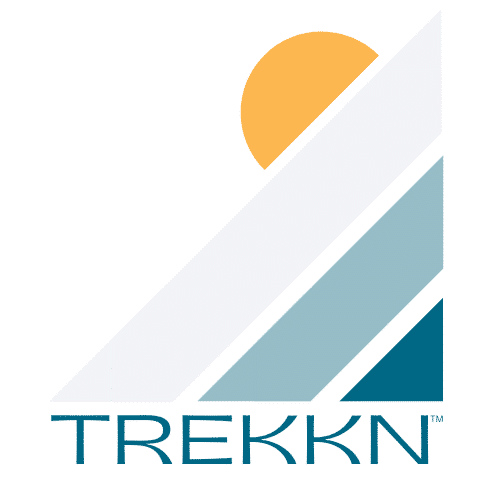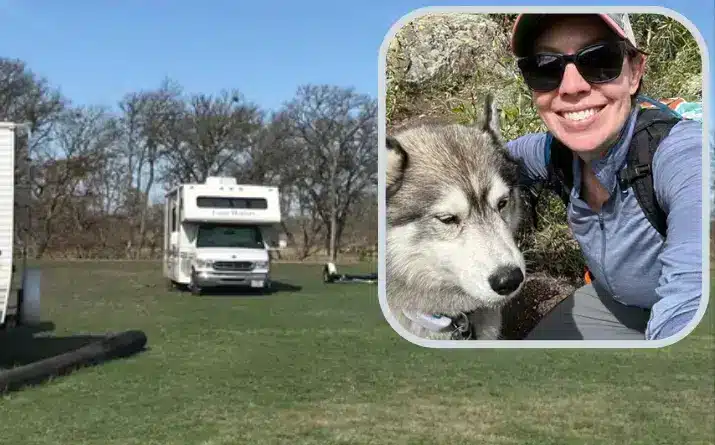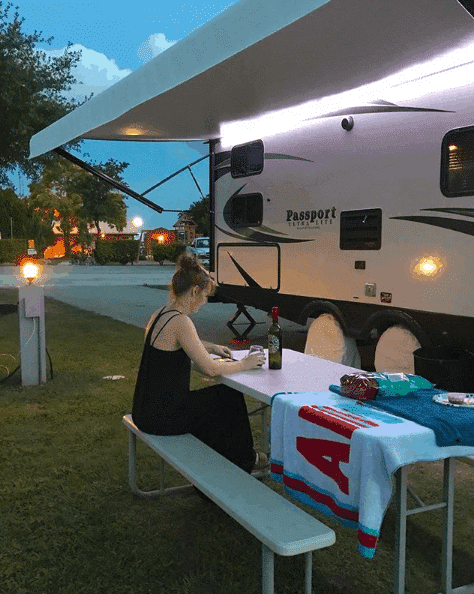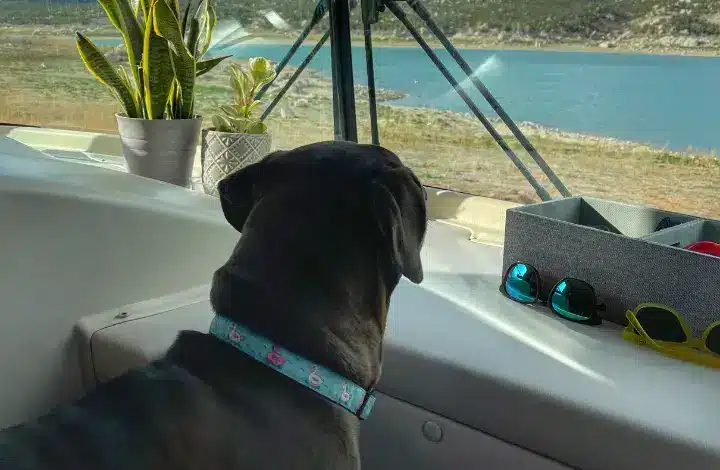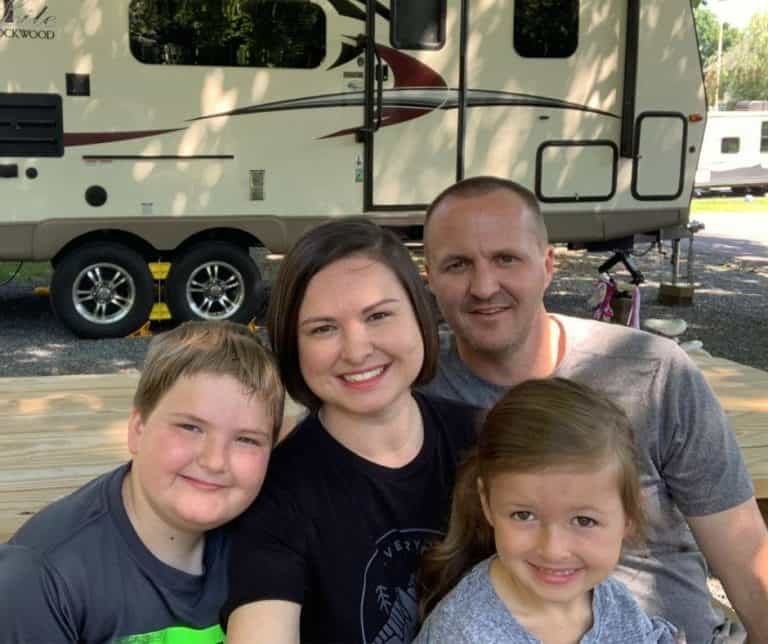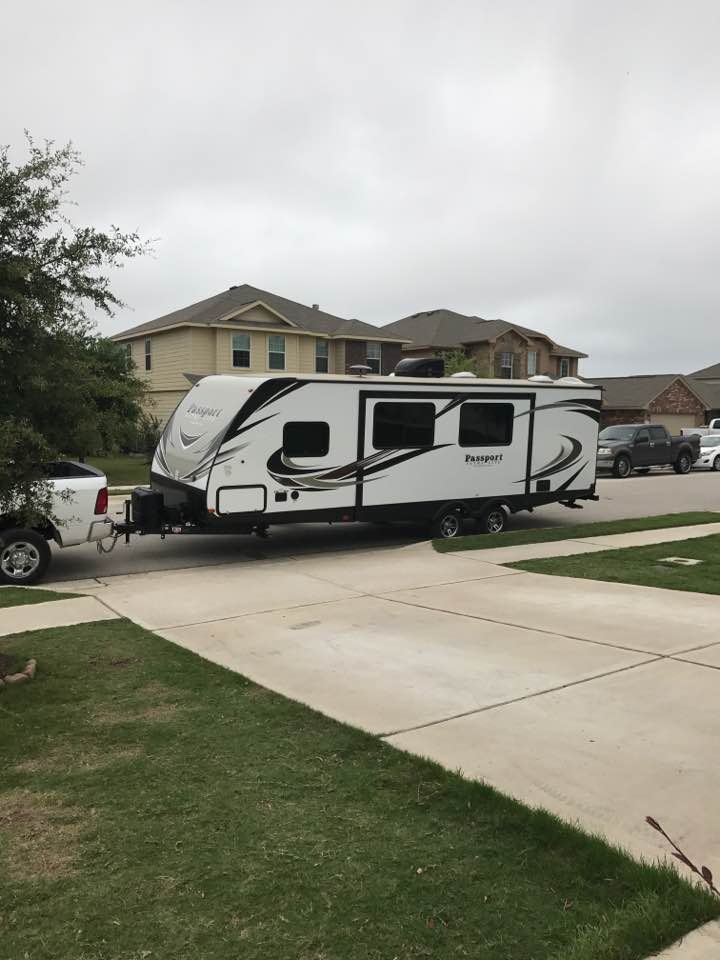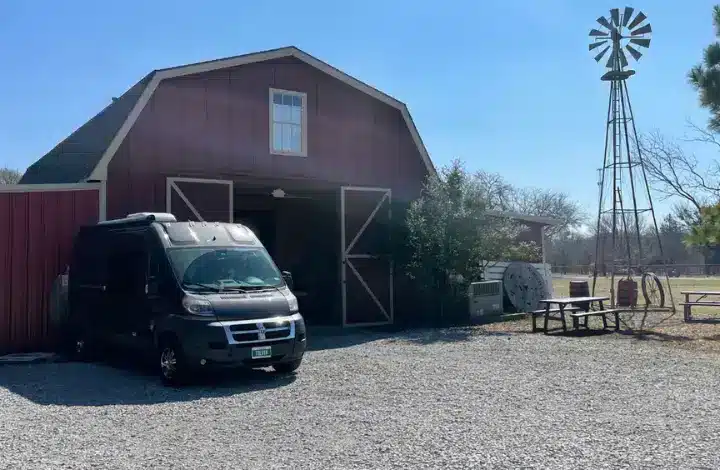7 Essential Tips Solo RV Travelers Need to Know
Solo RV travelers have the unique opportunity to explore the world on their own terms. It’s an adventure that brings a sense of freedom, self-discovery, and the excitement of the open road.
But traveling alone in an RV also comes with its own set of challenges. Whatever the road throws at you, from unexpected repairs to situations that don’t feel safe, you’ll be handling them solo.
Despite the challenges, solo RV travel can be an incredibly rewarding and enriching experience. I wouldn’t trade my five years of it for anything. To make sure you enjoy your time on the road, here are 7 essential tips for solo RV travelers looking to ensure a smooth and enjoyable journey.
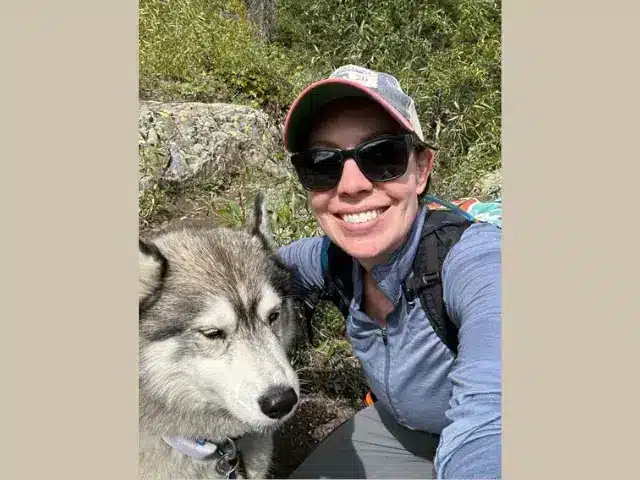
Essential Tips for RV Travel
Tip #1: Prioritize Safety
Safety should always be a top priority when traveling alone, whether you’re in an RV or not. But, RVing can be particularly hazardous, depending on where and how you travel.
Here are a few important safety tips for solo RV travelers.
Stay Connected
Always make sure someone knows your travel plans, and check in regularly. My family can see my location in real time using Life360. Alternative, you can share your location with friends or other travelers on Google Maps. Make a plan that ensures someone will know about it as quickly as possible if you go missing.
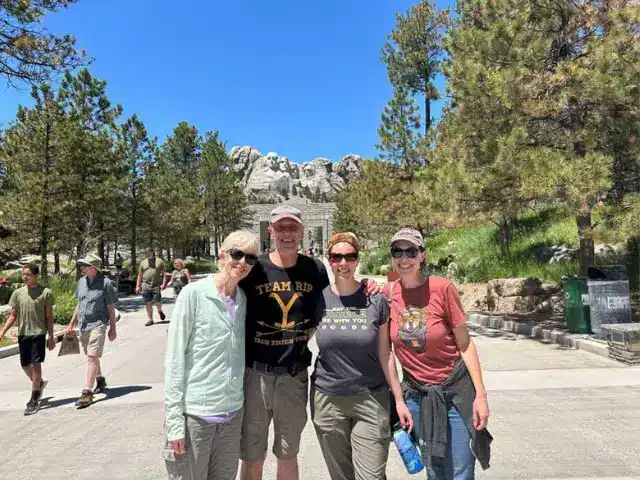
Trust Your Gut
This is especially important for my fellow female solo travelers. If you pull into a site and things don’t feel right, leave. Don’t be afraid to raise your voice or ask questions that might seem rude. If your safety is at stake, err on the side of rudeness.
I once let some random man direct me to a campsite near his rig in a dispersed camping area because I (erroneously) assumed he was a camp host. Ask questions and move along if things don’t feel right.
Upgrade Your Tech
Depending on your personality, you might feel safer with a few safety upgrades in place. Consider adding motion-sensor lights or cameras to your RV to help alert you if things go amiss.
For me, the most important security upgrade has been connectivity. You won’t always have a cell signal, so carrying a backup plan like a satellite phone (such as the Garmin InReach) or Starlink can help you stay contacted with the outside world from remote areas.
Tip #2: Master Solo Navigation
Navigating an RV alone can be daunting, but with the right tools and preparation, it’s totally manageable. My best advice? Don’t trust Google Maps, especially if you’re in a big rig. It will lead you astray.
Find a Reliable GPS
Google Maps is helpful, but only up to a point. I can’t even count the number of times it’s tried to save me one minute by sending me down a private road, under a very low overpass, or across a pedestrian bridge, all while towing a big fifth wheel.
Double-check your Google Maps route using the satellite view or Google Earth. Or, better still, use an RV route planning tool like RV Trip Wizard to check for low clearance, narrow roads, or other hazards.
Plan Your Route
Every time I don’t do this, I regret it. Always have a clear idea of where you’re going to avoid stressful situations. If necessary, go low tech—write down your route on a piece of paper and keep a paper atlas in your rig. It may seem old school, but you’ll be grateful you did if you lose cell signal in the middle of nowhere and need to recalculate your route.
Take Breaks
Regular breaks are crucial to avoid fatigue, especially when you’re the only driver. I’ve even pulled into a rest stop and napped in my driver’s seat when the highway sleepies get bad.

Tip #3: Plan for Unexpected Repairs
Make no mistake: no matter how new your RV is, things will break unexpectedly. A lot. And when you’re on your own, dealing with repairs can be challenging.
Here is how to prepare for unexpected RV maintenance and repairs:
Learn Simple RV Repairs
Familiarize yourself with your RV’s systems and learn how to fix common issues. You should be able to do basic maintenance on your RV by yourself. That includes knowing how to winterize your RV as well as how to maintain the major systems.
This will help you learn how everything works. You should get familiar enough with your RV that when something breaks, you’ll know where to look when it’s time for a fix.
Carry Basic Tools
Carry a toolkit that includes wrenches, pliers, plumber’s tape, a socket set, spare fuses, spray lubricant, zip ties, duct tape, and a road hazard kit at a bare minimum. You might also carry spare parts, like a backup water pump, in case a part breaks in a remote area.
I use my spare water pump to pump water from an external bladder into my fresh tank when I’m boondocking. As a bonus, I always have a water pump on hand in case mine breaks!
Always Have a Plan B
Become an accomplished pivoter. You may have to pull off at the next exit because your truck has gone into limp mode, and suddenly you need to find both an accomplished diesel mechanic and an RV park at a random highway exit. (Ask me how I know.)
While you can’t plan for everything, make sure you have a roadside assistance plan and know where to find additional resources if you need them.
Tip #4: Learn to Love Solitude
Traveling solo doesn’t have to mean that you’re alone. RVers are everywhere, and they tend to be a friendly bunch.
Here are a few key tips for learning how to make the most of your solo adventure.
Embrace the Solitude
Take some time to do something you enjoy all on your own. Go for a hike, explore a new city, or sample food at a local restaurant. Use your alone time for self-reflection, hobbies you love, or reconnecting with nature.
Stay Social
Even seasoned introverts can have too much alone time. Attend RV meetups or community events to connect with fellow travelers. Many campgrounds host social events like bingo or poker nights that can be a good way to make friends.
Join some strangers around the common area campfire—you never know who you’ll meet or how long those relationships will last! The first people I met on the road are still dear friends I keep in touch with years later.
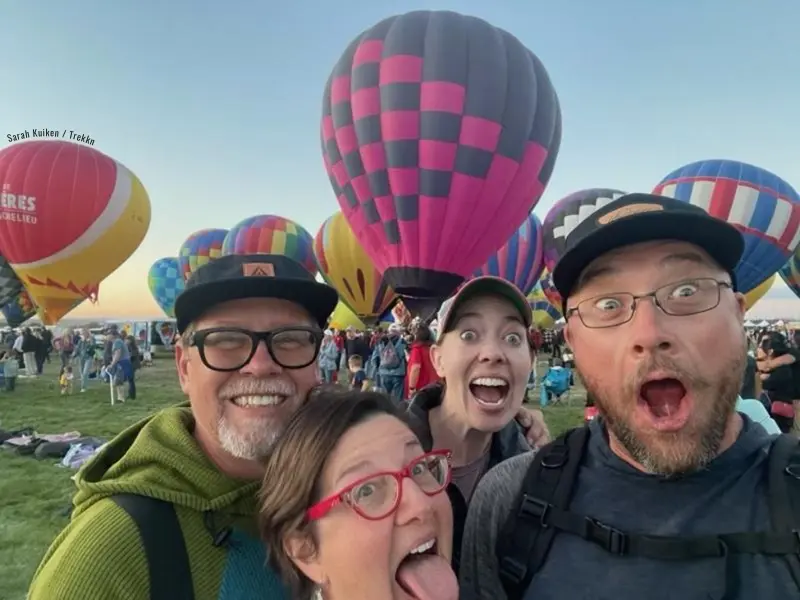
Meet the Locals
Engage with local communities and experiences. Ask around about events in the area, or just explore and see what you find. Dog parks are a great place to meet like-minded people.
But if dogs or dog parks aren’t your thing, find a similar venue where you can meet people with common interests. Some great examples include libraries, gyms, farmer’s markets, and antique shops. Breweries and distilleries are also great places to meet both locals and other travelers.
Tip #5: Stay Flexible
Spontaneity is one of the joys of solo RV travel. You get to choose where you travel, how you travel, and what you do, because there’s no one to compromise with!
Here are a few tips to make the most of your freedom on the open road:
Be Open to Change
Don’t be afraid to change your plans. Weather is one factor that can—and will—impact your route. As an RVer, you need to pay more attention than most to adverse weather conditions, so keep your eyes and ears open. If the weather looks bad or dangerous where you’re headed, change course! You can always go back when things improve.
Be Aware of Opportunities
If you discover an interesting detour or local event, go for it! Sometimes you’ll pull into a town and want to see more, so be ready to change your plans and explore the hidden treasures you find.
Tip #6: Don’t Neglect Self-Care
Maintaining your health and wellness is vital, especially when you’re traveling alone. Energy is a resource, and if you deplete it, you’ll be in serious trouble—especially if there’s no one around to help you.
Keep a Routine
As much as possible, try to maintain a daily routine that includes exercise, healthy eating, and adequate sleep. It’s easy to neglect all of these on the road, especially because you’ll feel like you’re in “vacation mode,” but don’t let your health take a backseat.
Cook Healthy Food
Or at least, don’t eat too much fast food. As much as possible, source whole foods and aim to eat your daily recommended dose of fruits and vegetables. If you subsist on truck-stop fast food, you won’t stay healthy for long.
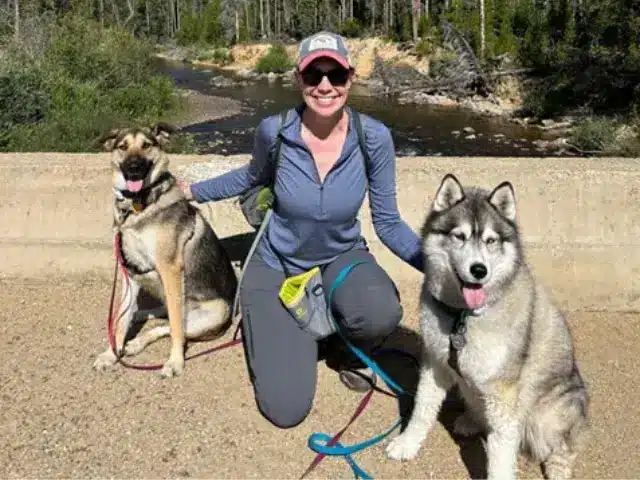
Tip #7: Embrace Technology
Modern technology can be a solo traveler’s best friend, helping to keep you safe, connected, and entertained while you’re on the road.
Stay Connected
Solo RV travelers can use mobile hotspots, Wi-Fi boosters, and/or Starlink to stay connected with family and friends from anywhere.
There’s an App for That
There are apps for everything from finding campsites to tracking your RV maintenance to meeting fellow nomads on the road, so use them! Here are my personal favorite apps that I use during solo RV travel:
Campendium (for finding campsites), Roadtrippers (for finding fun stops), BringFido (for finding dog-friendly activities), AllTrails (for finding hikes), and GasBuddy (for finding the cheapest fuel).
What Tips Do You Have for Solo RV Travel?
Solo RV travel is an incredible way to see the country, offering a sense of freedom and adventure that’s hard to match. While it can seem scary or isolating at first, being a solo RV traveler really is what you make it.
The road is yours to explore, so enjoy every mile of your solo RV adventure!
Do you have any words of wisdom or good advice for the members of our audience who travel solo? It’s always great to hear from our readers. Please send in your feedback using the comment form below.
Safe travels!
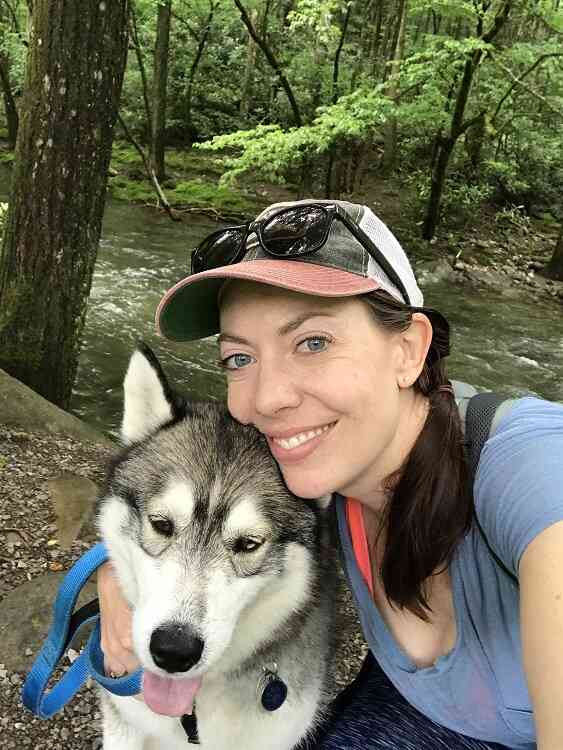
Sarah Kuiken has been a full-time solo traveler for 4 years and counting, but she’s been a solo adventurer for decades. She owns her own copywriting business, Flourish Writing, which she operates from the road. Sarah loves to explore state and national parks with her two dogs, Orion and Piper—wherever they’re allowed, of course. When she’s not whipping up web copy for fellow entrepreneurs, she’s probably out hiking or paddle boarding with the dogs in tow. Learn more about her freelance writing business at FlourishWriting.com.
